|
Join the ISfTeH
| |
Are you heading a national telemedicine/eHealth organization?
Do you offer telemedicine products and solutions?
Are you doing research on telemedicine and eHealth applications and technologies?
Does your organization provide (or wants to offer) care services by means of telemedicine/eHealth technologies?
Are you engaged in healthcare policy?
If so, you may be interested in joining the ISfTeH network to expand your global reach or to learn from existing experiences and best practices.
Or send an
e-mail with your question or membership request.
|
|
Upcoming ISfTeH-Supported
Telemedicine Events
18th ISfTeH International Conference
Takamatsu, Japan
Oct 18-19, 2013
_________
EMMIT 2013 - 9th International Meeting eHealth and Telemedicine in Mediterranean Countries
Nador, Morocco
Oct 21-23, 2013
_________
Carrefour de la Telesante
Paris, France
Oct 23-24, 2013
_________
SFT-13 Successes and Failures in Telehealth-4th Annual Meeting of the Australian Telehealth Society
Brisbane, Queensland, Australia
Nov 11-12, 2013
_________
INTERNATIONAL TELECARE and TELEHEALTH CONFERENCE
Birmingham, U.K.
Nov 11-13, 2013
_________
ASSTeH Symposium
Vienna, Austria
Nov 15th, 2013
_________
AfriHealth 2013
Nairobi, Kenya
Nov 20-21, 2013
_________
TELEMEDICON 2013 - 9th International Conference of the T.S.I.
Jaipur, Rajasthan, India
Nov 29-Dec 1, 2013
_________
EHTEL 2013 Symposium
Brussels, Belgium
Dec 2-3, 2013
_________
Sixth International Conference on Intelligent Computing and Information Systems, ICICIS 13
Cairo, Egypt
Dec 14-16, 2013
_________
Med-e-Tel 2014
Luxembourg
April 9-11, 2014
_________
Geneva Health Forum
Geneva, Switzerland
April 15-17, 2014
_________
For more information on Overall Telemedicine Conferences and Events, click here.
|
ISfTeH Ambassadors
|
| |
Archbishop Emeritus Desmond Tutu

Dr. Emilio Rui Vilar, President of the Gulbenkian Foundation
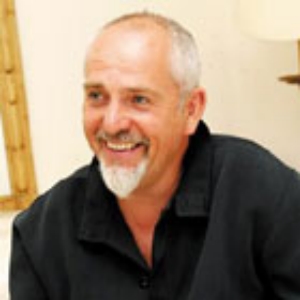
Peter Gabriel, Eminent Musician
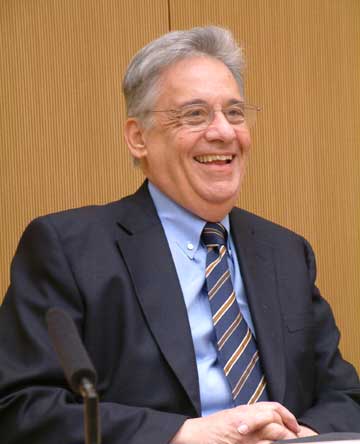
Prof. Fernando Henrique Cardoso, Former President of Brazil

Lord Nigel Crisp, Former CEO of the NHS, UK
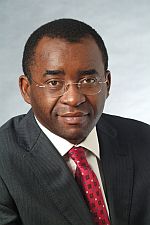
Strive Masiyiwa, Founder and CEO of Econet Wireless Group
|
|
ISfTeH Board Members
| |
President
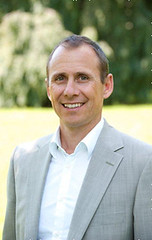
Dr. Andy Fischer
Switzerland
Vice President
Mr. Steven Normandin
U.S.A.
Secretary and Treasurer

Mr. Frank Lievens
Belgium
Other Members

Prof. Rupert Gerzer

Prof. Yogesan Kanagasingam
Australia

Prof. Rifat Latifi
U.S.A.

Dr. Moretlo Lynette Molefi
South Africa

Prof. Oleg Orlov
Russia

Dr. Andre Petitet
France
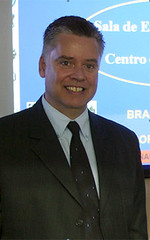
Dr. Adolfo SparenbergBrazil
Executive Director
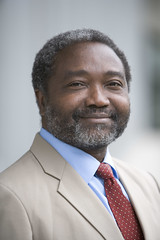
Prof. Yunkap Kwankam
Switzerland
|
|
ISfTeH New Members
Institutional
MILLENIA 2025 "Women and Innovation" FOUNDATION,
Belgium  H200 Italia, Italy 
Individuals Ankush Bansal, U.S.A. 
Jill Fortuin, South Africa Holly Greenfield, U.S.A. 
Georgy Lebedev, Russian Federation 
Karim Nader,
U.S.A.
 Sergio Pillon,
Italy
Students Iuliana Hriban,
Romania
 Pawan Adhikari, Australia 
Kristian Berg, Norway Fazil Panhwar, Pakistan 
Kashan Memon, Pakistan 
Kristian Nicolaisen, Norway Muhammad Talha Patel, Pakistan 
Ghulam Dastagir Shah Syed, Pakistan 
Takunda Mukumba, Zimbabwe 
Zamikhaya Mapundu, South Africa

Nurses Paul Sunmbola, Nigeria 
David Foord, United Kingdom  Oddvar Hagen, NorwayAshagre Molla, Ethiopia
Salamatou Traore, Niger 
|
|
|
The ISfTeH Newsletter is published quarterly for members of the telemedicine community to provide up-to-date information regarding current happenings in the international telemedicine and e-Health industry.
Feel free to share this Newsletter with business colleagues by forwarding it to your associates.
If you would like to submit an article or be added to our email distribution list, please email Aliana at asvechak@amdtelemedicine.com.
|
|
|
Letter from the Executive Director
Dear Reader,
As I indicated last year, from time to time I will give a member of our community the opportunity to use this space to share their thoughts with everyone. Dr. Sunoor Verma, Executive Director of the Geneva Health Forum, is the first to take advantage of this, with his piece on the people who straddle the worlds of health and technology like we do. The ISfTeH signed a memorandum of understanding with the Geneva Health Forum this summer. We all look forward to a mutually beneficial collaboration with the GHF.
Sincerely,
Prof. S. Yunkap Kwankam
Executive Director
Editorial
Dr. Sunoor Verma, Executive Director of the Geneva Health Forum
"Antevasins from the worlds of technology and health- please unite!"
- Sunoor Verma
Mention 'technology and health' and discussions generally steer into the direction of various gadgets and devices that transmit data, help remote diagnostics or empower patients to better manage their chronic conditions. The use of Google glasses by surgeons around the world is the latest in generating such excitement. This is understandable in an era of short attention spans, where we tend to choose the visibly most exciting and the one that can be touched, tried and tested. While these new inventions are thrilling a majority of them remain in the realm of luxury for a large part of the world. What often remains invisible and under-acknowledged is the role that information and communication technology (ICT) plays in transforming the landscape of wider issues such as power and access. At the first instance this may seem unrelated to health. However it is these disruptions that ICT can make that carry the potential of making health more accessible.
'Access to health' questions are essentially questions of power imbalances, equity and human rights. Information and communication technology are essential for de-monopolization of information and power and also for bypassing corruption. Communities where girls and women are not allowed to step out of their homes to go to schools can now be reached in their homes through eLearning programs. Digitization of land records in feudal societies is leading to major power shifts in communities. These shifts create new opportunities for people to think beyond 'survival'. When such developments are coupled with legislation that empowers the citizens with the right to information, wonders can happen in many fields including health. The potential of transparency and rapid dissemination of information that ICT brings warrants close collaboration between champions of access to health and technologists. This should not be confused as relevant only in the low income- resource constrained setting but also in the high-income countries where health cost is sky rocketing.
If we wish to make health accessible for more people in more places in the world we would need to find effective ways of integrating 'technology thinking' into 'health thinking'. In the current scenario technology is seen in service to health - a vehicle for carrying forward health services and products. The vehicle and the product are usually developed independent of each other and their coming together is more often a coincidence than by design. In health projects I often see technology as an after thought and not as an integral element of the project design.
While 'inter-disciplinarity' is a term tossed around by global health gurus and policy writers, it is a mammoth task to achieve in practice. The first step towards this integrated thinking would be to create dialogue spaces that are conducive for the meetings of the Antevasins from the worlds of technology and health.
Antevasin (Ante-vasin n. Sanskrit) loosely translates as 'living at the borders'. This word gained quite some popularity when used in the book "Eat, Pray, Love" by Elizabeth Gilbert. Finding Antevasins in the area of Health and Technology is a challenge as both fields take pride for their super-specialists. Add to this the tendency of people to put experts of health and technology in a box. However it is vital that we search for those who while having their niche of expertise are able to see the bigger picture and appreciate the importance of connecting with 'outsiders'.
I had the privilege of attending the annual conference of the ISfTeH in Luxembourg 2013- Med@Tel. The size of the conference, the sessions, the layout and the staff that managed the event, created an ambience conducive to networking that goes beyond the customary exchange of visiting cards. To my delight at Med@Tel I met an impressive numbers of Technology Antevasins. Saddened I was, to see few from my own tribe of health and medicine at the conference. This led to our proposal of a thematic partnership between the ISfTeH and the Geneva Health Forum.
Since 2006 the Geneva Health Forum (GHF) has asked hard questions, invited practical solutions, and heard many brave voices from all over the world. As the world gets more complicated and health more vital we have come together in a partnership with ISfTeH to strengthen the ICT component of the GHF 2014. We have operationalized this by dedicating a complete submission track to Innovation and technology at the next edition of the GHF in 2014.
Over the last four editions of the forum we have tried to ensure that partners appreciate the value proposition of the Geneva Health Forum and commit to contributing to its content. The fruits of these efforts were clearly visible in the fourth edition in 2012. This has also enhanced the credibility of the GHF as a forum where 'Content is King'. Gradually partners have come to value the unique dialogue and networking opportunity that the GHF provides. Many partners have also found value in getting access to the views from the frontlines that the GHF channels, which may show trends that initially, may be invisible to policy makers in Geneva.
We are confident in the robustness of the product that we are bringing forward. In a fast moving world of multiple and non-stop choices, we feel, content will prevail over packaging. We feel that the global health community has no more patience for predictable, self-asserting and mind-numbing meetings, conferences and sessions. It is time to raise the bar and bring back discussions and debates that make health more powerful.
The Geneva Health Forum is not meant to attract spinners and fence sitters. It is a forum of Antevasins from across disciplines that are able to see beyond their own spheres of expertise, excellence and influence. It is a forum that brings together believers of interdependence over independence. I earnestly hope that members of the ISfTeH will participate and infuse the discussions at the GHF2014. We know that without ICT there can be no scale to health initiatives. At the same time we will try to encourage health experts to engage at your fora and bring their perspective to challenges and possible solutions to advance health and well being. I invite you to visit the web site of the GHF.
I earnestly hope that the partnership between ISfTeH and the GHF will lead to new disruptions that will make health more powerful.
I wish you good health!
Sincerely yours,
Dr. Sunoor Verma, MD MS
Executive Director
Geneva Health Forum
sunoor.verma@hcuge.ch
Disclaimer: The views expressed here are those of the author and may not necessarily represent the views of the Geneva Health Forum.
|
ISfTeH Meetings and Conferences
Takamatsu, Japan
October 18 - 19, 2013 The annual ISfTeH International Conference is held each Fall.Luxembourg
April 9 - 11, 2014
For more information on Med-e-Tel 2014, please visit: www.medetel.eu or contact: info@medetel.eu
Click here to read the report from Med-e-Tel 2013!
The next edition of the ISfTeH's annual Med-e-Tel conference is scheduled for April 9-11, 2014 in Luxembourg.The event offers excellent opportunities to meet and network with healthcare providers, industry representatives, researchers and policy makers from 50 countries worldwide.
Through its vast conference program and its exhibition, it provides a look at practical telemedicine/eHealth experiences from around the world and an opportunity to hear about the latest trends and to discover and evaluate new products and technologies.
If you would like to submit a presentation proposal for the Med-e-Tel 2014 conference program, please go to: www.medetel.eu or contact: education@medetel.eu
Deadline for submissions is December 22, 2013.
|
National Member Spotlight
 | | ACHISA |
The Chilean Health Informatics Association (ACHISA) is a not-for-profit professional organization aimed at developing and promoting Health Informatics in Chile. The association recently extended its mission by including the final goal to improve healthcare by means of Health Informatics discipline. Formally founded in 2009, it currently has 125 members. In its first years, ACHISA mainly focused its activities in two specific aspects: healthcare information exchange/interoperability challenges and healthcare information security by carrying out several courses and workshops covering the following aspects (among others):
- Vocabulary Standards (SNOMED-CT, GRD, ICD etc.)
- Information/Systems Security in Healthcare (CompTIA Security+ and CISSP content/aspects)
- openEHR standard (promoting and supporting courses carried out by ing. Pablo Pazos/Uruguay as well as the setup of a Spanish community around the standard).
- openClinica online workshop together with Scian Lab (Universidad de Chile), Hochschule Heilbronn and GOCCHI (Grupo Onocológico Coorperativo Chileno de Investigación).
The association has signed two scientific, academic and cultural exchange agreements. One with Hospital Italiano de Buenos Aires - Informatics Department (2011) and another one with Universidad Central de Chile - Centro de Informática en Salud (2013). The first agreement led -among other initiatives - to an active participation of ACHISA members into the "Ateneos Bibliográficos" weekly virtual webinars carried out by the Hospital Italiano de Buenos Aires, aimed at translating and discussing scientific articles related to the discipline within the Spanish community, thus lowering the language barrier and promoting timely knowledge exchange among the Latin-American community. While thanks to the second agreement several joint activities have been carried out together with Universidad Central de Chile in matters of national interest, like for instance the initiative and public call to re-build and re-affiliate the Chilean HL7 Chapter to HL7 International recently undertaken.
ACHISA representatives actively participate as external advisors to the Chilean National Center for the Family of International Classifications led by the Departamento de Estadísticas e Información de Salud -DEIS (Chilean Ministry of Health), represent Chile within the Nursing Informatics IMIA-LAC Working Group and have a permanent guest seat within the ACTI (Chilean IT Industry Assoc.) Healthcare Group. In 2011, the association was recognized by the Chilean Ministry of Health (MINSAL) as a relevant external actor for reaching the 2011- 2020 healthcare goals.
Among the most relevant projects and initiatives currently undertaken, the development of an Ethics Code for the Association/Professional Community can be mentioned as well as the development of a Chilean/Spanish version of what is considered to be the essential set of Health Informatics Professional Competencies in order to divulgate and promote adoption of them it into the academic curricula of healthcare professionals in Chile.
ACHISA is a member society of IMIA (International Medical Informatics Association) since 2010 and a national member of ISfTeH since 2011.
More information, contact:
Asociación Chilena de Informática en Salud - ACHISA
Napoleón 3565 of. 202 - Las Condes - Santiago
www.achisa.org
______________________________________
A different National Member will be spotlighted each quarter.
|
Board Member Spotlight  | Prof. Dr. Rupert Gerzer
|
Rupert Gerzer (born in 1950) is a Medical Doctor. He is head of the Institute of Aerospace Medicine of the German Aerospace Center in Cologne, Germany, and Professor of Aerospace Medicine at Aachen University since 1992. He is trustee to the International Academy of Astronautics since 2003, is Co-Editor Life Sciences of Acta Astronautica, member of the Swedish National Space Board 2010 - 2013, chairman, Science Council of the City of Cologne 2012 - 2013 and head of the University Council of the University of Applied Sciences Bonn-Rhein-Sieg from 2006 to 2016. Dr. Gerzer is a member of the Medical Advisory Board to the German Minister of Defense since 2008. He served as President of the German Society of Aerospace Medicine from 1999 to 2001 and of the German Society for Travel Medicine from 2006 to 2009. He was also Vice President of the German Society for Health Telematics from 1999 to 2005 and has been on the Board of Directors of the International Society for Telemedicine and eHealth since 2011. He is co-founder of the companies TEMOS International and Temondis.
After his graduation in Medicine at Munich University in 1977, Dr. Gerzer worked as a postdoctoral fellow in molecular Pharmacology at Heidelberg University from 1977 to 1980 and at Vanderbilt University in Nashville, TN, USA from 1980 to 1983. Then, he did Internal Medicine and Clinical Pharmacology at the University of Munich from 1984 to 1992 before accepting the current position. From 1988 to 1992 he held a Heisenberg Professorship from the German Research Fund DFG at Munich University.
He received the Life Sciences Award of the International Academy of Astronautics in 2003 and the Leonov Medal of the Association of Space Explorers in 2013. He was awarded with a guest scholarship to Baylor College of Medicine in Houston, TX, USA, from the Paul Martini Foundation in 1987. He was Guest Professor at the University of Campinas, Brazil, in 1987 and of the University of Nagoya in 1997. His 245 scientific papers have been cited 4749 times by September 2013 (h-Index 35).
The DLR Institute of Aerospace Medicine has about 200 employees. About 45% of funds come from external sources. The Institute is jointly responsible, along with the European Astronaut Centre, for the medical care of European Astronauts. Thus, telemedicine is an important task for the Institute. In addition, the Institute provides telemedicine solutions for the German Armed forces since about 15 years. The Institute has also provided telemedicine solutions for remote areas in the world and is currently involved in regional activities in Germany to improve services after emergency situations by telemedicine solutions. Currently, they are in the process of opening a new research facility termed envihab. In this facility, they will conduct long term bed rest and isolation studies. During these, they will test novel telediagnostics, telemonitoring and teleassistance systems that can later be employed in the market.
_______________________________________
A different Board Member will be spotlighted each quarter.
|
|
Corporate Member Spotlight
 Are you or someone you know part of a commercial organization such as a manufacturer, distributor and/or service provider in the field of telemedicine/eHealth? You could be a Corporate Member of the ISfTeH! Are you or someone you know part of a commercial organization such as a manufacturer, distributor and/or service provider in the field of telemedicine/eHealth? You could be a Corporate Member of the ISfTeH!
To learn more about how to join and the benefits of being a Corporate Member - including a feature article in the ISfTeH quarterly Newsletter sent to over 20,000 recipients - click here to apply! |
|
ISfTeH Member News
National Member News
 | |
FINNISH SOCIETY OF TELEMEDICINE AND EHEALTH (FSTeH)
|
FSTeH: AN INNOVATIVE DEVELOPER BOTH NATIONALLY AND INTERNATIONALLY
Three years ago Finland became the first country in the world to make broadband internet access a legal right for all citizens.
The legislation forces telecom operators to provide a reasonably priced broadband connection with a downstream rate of at least one megabit per second (mbs) to every permanent residence and office. Recently in April 2013 Finland was ranked first in the Networked Readiness Index (NRI) of The Global Information Technology Report published by the World Economic Forum and INSEAD.
FSTeH is strongly devoted to promote ehealth education and training among doctors and nurses. This year, the world's first special competence in ehealth for physicians was launched in Finland! In addition, there is an available master programme in English. The purpose of the Master of Health Care Programme is to investigate, develop, produce and evaluate new client driven eHealth Service. Continue reading here.
_ _ _ _ _ _ _ _ _ _ _ _ _ _ _
"Survey on mHealth Potential in India"

T.S.I.. - Telemedicine Society of India
To read more, click on the articles below:
1) "mHealth Acceptance and Use in India Study-HYD Presentation"
2) "mHealth Acceptability in India"-synopsis of Report
3) "Patient Empowerment - The eWay", A Story from Rural Tamil Nadu
_ _ _ _ _ _ _ _ _ _ _ _ _ _ _ _
"The International Telecare & Telehealth Conference 2013"
T.S.A. - Telecare Services Association (U.K.)
11-13 November 2013
Hilton Birmingham Metropole

Register today for the largest industry specific Conference in Europe relating to technology enabled services, including telecare, telehealth and mcare. Don't miss this fantastic opportunity to share best practice and to discuss and debate the key issues affecting the industry and attend practical and interactive breakout sessions.
A feature of conference is the Exhibition Zone, which showcases the leading manufacturers and suppliers of equipment, as well as leading service providers.
Last year saw over 800 people attend the conference, reinforcing the importance of this event. We had delegates attending from as far afield as China, Bulgaria and the USA, which highlights the UK's importance within the industry.
We are delighted to be welcoming back the Minister of State for Care and Support, Norman Lamb MP, who will again be delivering a ministerial address, and we are also looking forward to hearing Fabrice Muamba's extraordinary tale of how technology saved and is still saving his life.
The programme for this year's event can be found here.
_ _ _ _ _ _ _ _ _ _ _ _ _ _ _ _
"Women Involvement in Telemedicine in Kosovo"
ISfTeH National Member: Telemedicine Centre Kosova
The Telemedicine Center of Kosovo, with its residency in Prishtina-the capital city of Kosova, together with six Regional Telemedicine Centers in six regional hospitals around the country: Prizreni, Gjakova, Peja, Mitrovica, Gjilani, Skenderaj; constitutes the Telemedicine Program -Web of Kosova established in 2002. Its work began with the First Intensive Telemedicine and e-Health Seminar helded in 2002, to be continued with the activation of clinical usage as Teleconslultation- Real Time and Store & Forward technology and as Continuous Medical Education through electronic libraries and videoconferences escorted by international and national lecturers. Telemedicine represents an important tool in the hands of health care professionals for providing better patient centered care. Evolution and progress of this method in e-Health, m-Health and u-Health, shows once again that technology and culture of people around the world take the sense of Technoculture. Read more.
_____________________________________
Institutional Member News
 | |
Institute of Tropical Medicine - Belgium
|
The AFRICA BUILD project, an EU funded project to improve capacity in health research and education through ICT, now offers a set of courses in the field of health informatics, health research, evidence based medicine, and several other subjects where information technologies and health research meet. P ilot courses and health informatics applications are currently offered through an on-line educational portal called the AFRICA BUILD Portal, which uses several features similar to a social network. By mid 2014, a full set of educational material will be accessible through this learning environment for African health researchers.A secondary aim is that African health researchers would meet their peers through this platform, creating a community of researchers. The portal is available through the URL: http://portal.africabuild.eu.
 Click here or on the logo above for updates on the Africa Build project.
_ _ _ _ _ _ _ _ _ _ _ _ _ _ _ _
 Dear Fellow Experts in Telemedicine and eHealth, As an international expert in the field, you are being selected to participate in an anonymous, online questionnaire that would provide us with valuable feedback and critical insight into improving our organization's strategies in how we develop international telemedicine programs. The results of this survey will be used exclusively for the purposes of our organization's research. Furthermore, an Institutional Review Board at the University of Arizona has determined that our research complies with regulations regarding the protection of human participants. The questionnaire is composed of 14 questions, with an additional space for an optional free response. The survey should take 5-7 minutes to complete. Additionally, all responses will be recorded anonymously. To participate now, please follow these three steps: We greatly appreciate your consideration in participating in our study. Thank you, Rifat Latifi, MD, FACS
Professor of Surgery, University of Arizona, Tucson, Arizona, USA President, IVeH Board Member, ISfTeH _ _ _ _ _ _ _ _ _ _ _ _ _ _ _ _
"COMSATS eHealth Programme"
 | |
COMSATS-Pakistan
|
The focus of the activities of COMSATS eHealth Programme is to promote and employ COMSATS' experience in the use of Information and Communication Technology (ICT) to reach out with healthcare facilities to the marginalized communities of the remote and relatively inaccessible areas of Pakistan. Over a decade old now, the initiative is rooted in COMSATS' strong expertise in the field of Information and Communication Technologies (ICT), and an informed realization that ICT can bridge the physical distances between patients in far-flung areas and doctors/specialists in urban areas. To read more about COMSATS eHealth Programme, click here.
___________________________________________
Corporate Member News

"FSU Medical School treats Panamanian Patients via Videoconferencing"
The following case study is provided by GlobalMed Telemedicine, Corporate member of the ISfTeH
|
|
Working Groups
Telenursing
The International Council of Nurses (ICN) recently appointed the Telenursing Network Advisory Group for 2013-2015, aligning dates with the biennial ICN Congresses and Conferences. Three of the new members of the Advisory Group are also members of the ISfTeH Telenursing Working Group. They are Konstantinos Antypas (Norway), Munawar Hussain (Pakistan) and Jose Angel Sanguina (Venezuela). The Advisory Group will concentrate on developing a new product for ICN and telehealth nurses worldwide. In the last decade, ICN has published telehealth programme standards and telehealth nursing competencies. The new product will help to guide current practice and anticipate the issues and expectations for future practice; its format is yet to be decided.
________________________
WoW
The Millennia2025 Foundation "Women and Innovation", the Working Group on Women (WoW) and Connecting Nurses are pleased to announce the Women Special Session at Med-e-Tel 2014 on the theme: "Women, eHealth and Telemedicine at all ages of life: from Birth to Elderly". About 5 to 6 presentations will be selected, each one representing an age of the life: Birth, Early Childhood, Childhood, Adolescence, Adult, Elderly.
The objective of the session is to identify or validate the key issues on the access and use of eHealth and Telemedicine at each age for women as individuals, health professionals, IT/Telecom professionals, and decision makers. How to improve and scale up eHealth and Telemedicine services adapted to all ages of life?
For the following Med-e-Tel congresses, specialized themes are envisaged such as "Telemedicine and Pregnancy", "Telemedicine and Gynecology", "Telemedicine and non-communicable diseases" etc. This concentration on special subjects will allow to gain in depth information and knowledge about women and telemedicine and a stronger recognition in the community of telemedicine.
In addition, the WoW proposes a call for submission to incite more women to submit an abstract for (a) the Women Special Session and (b) all other sessions, attend and participate to Med-e-Tel as speakers, moderators and chairs. Please visit wow.isfteh.org for more information.
Contact:
Veronique Thouvenot: thouvenot.veronique@millennia2015.org
Anneliese Schmaus: anneliese.schmaus@gmail.com
Links:
Foundation Millennia2025
Connecting Nurses
Working Group on Women (WoW)
WoW: Call for Abstract Submissions
For the upcoming Med-e-Tel congress in 2014, the Working Group of Women has issued a call to submit abstracts for presentations from women and research groups working on eHealth and Telemedicine. Submissions can address the themes of the upcoming conference: "Women, eHealth and Telemedicine at all ages of life: from birth to elderly".
You can send an abstract here.
For registration fees and conditions for the 2014 event click here.
__________________________
eHispanic
Invitation to Students of the Spanish Speaking Community: Med-e-Tel 2014 (9-11 April, 2014 - Luxembourg)
__________________________
ePortuguese
Invitation to Students of the Portuguese Speaking Community: Med-e-Tel 2014 (9-11 April, 2014 - Luxembourg)
___________________________
Students
 As some of you know, the ISfTeH through its Students Working Group has recently celebrated an important cooperation agreement with the International Federation of Medical Students Association As some of you know, the ISfTeH through its Students Working Group has recently celebrated an important cooperation agreement with the International Federation of Medical Students Association (IFMSA), whose formal signature took place in Luxembourg, during Med-e-Tel 2013. The main goal of this new partnership is to teach and to disseminate eHealth concepts around the world, taking advantage of the labor force and the innovative spirit of a generation of future professionals of the health sector.
|
|
Announcements
New Publication from the WHO
The World Health Organization (WHO) published recently a new book addressing health literacy:
Health Literacy. The Solid Facts. Kickbusch I, Pelikan JM, Apfel F, Tsouros AD. Geneva Switzerland, World Health Organization, 2013.
As societies grow more complex and people are increasingly bombarded with health information and misinformation, health literacy becomes essential. People with strong health literacy skills enjoy better health and well-being, while those with weaker skills tend to engage in riskier behaviour and have poorer health. With evidence from the recent European Health Literacy Survey, this report identifies practical and effective ways public health and other sector authorities and advocates can strengthen health literacy in a variety of settings, including educational settings, workplaces, marketplaces, health systems, new and traditional media and political arenas. The report can be used as a tool for spreading awareness, stimulating debate and research and, above all, for informing policy development and action.
ISfTeH Discussion Forum
A discussion forum is open on the ISfTeH website, and is accessible to all duly registered members. Login with your username and password and you will see the "Discussion Forum" appearing on the top menu toolbar. In the Discussion Forum you will find the list of ongoing discussions or messages.
We encourage all members to use regularly this communication tool and to participate as such in dissemination of available experiences and information.
Should you have any additional questions, please send in via
info@isfteh.org
|
|
|
|
|